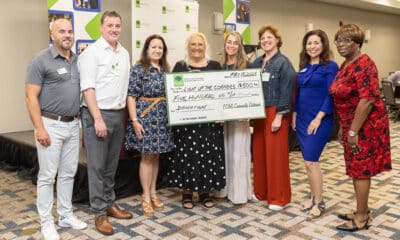Education
What are the challenges of digital learning, with Jonathon Wetherington [Podcast]
Published
5 years agoon
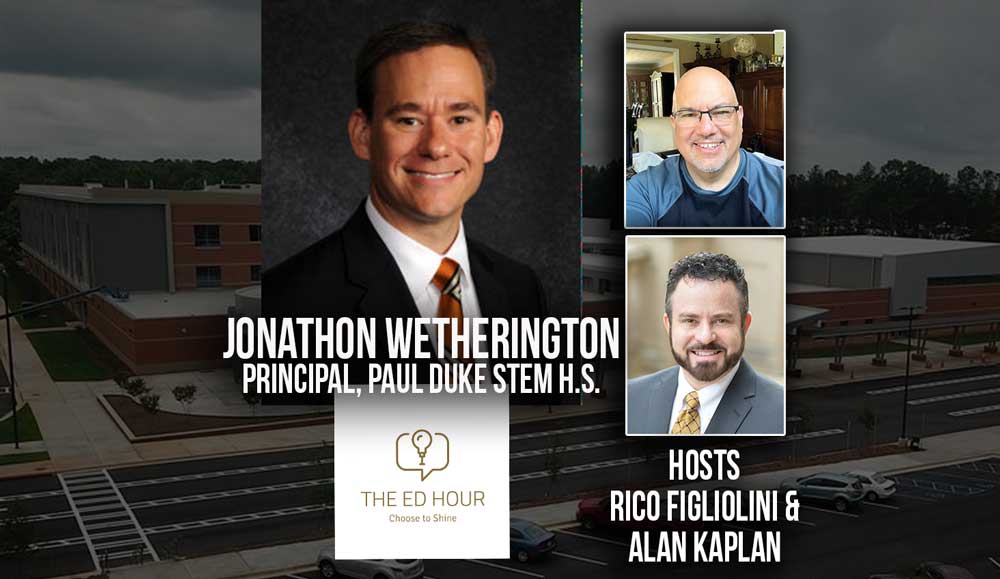
As we continue to move through this global pandemic, schools across the country are having to re-learn and re-imagine what their curriculum looks like. Join Rico Figliolini, Alan Kaplan, and our guest on today’s podcast, Jonathon Wetherington, principal of Paul Duke STEM High School as they discuss how education can work during this time.
Website: https://www.gcpsk12.org/pauldukestemhs
Facebook: https://www.facebook.com/PaulDukeSTEM/
“And I think the silver lining is that we’re discovering, we’re learning more about our students and how we can better meet their needs at all times. So typically a teacher thinks about how they can meet the students’ needs in their classroom. And now I think that we’re facing the reality of getting to know our students better so we can meet their needs at home as well. And that’s a two way street. The students value the fact that knowing the teacher cares, the teacher’s reaching out. And I think we’re building bridges between parents and teachers and parents and students that will pay dividends for years to come.”
Jonathon Wetherington
Timestamp:
[00:00:30] – Intro
[00:02:55] – Facing the Challenges of Online Learning
[00:07:22] – A New-Normal
[00:10:30] – Technicalities and Social Interactions
[00:13:39] – Hands On Activities
[00:16:25] – Staff on Campus
[00:18:50] – Finals
[00:20:18] – Providing Structure
[00:28:15] – Other Staff
[00:29:59] – Silver Linings and Social Media
[00:33:07] – Graduation in 2020
Podcast Transcript
Rico: [00:00:30] Hi everyone. This is Rico Figliolini host of the Ed Hour this week with Alan Kaplan, my cohost. We’ve been gone for a little while, but we’re back and Alan’s going to be introducing our guest in a little bit. Before we get there, I want to be able to introduce our sponsor of this family of podcasts, and that is Hargray Fiber. They’re a fiber company that’s working B2B in the Southeast and successfully in Peachtree Corners and the metropolitan Atlanta area and throughout Georgia. They provide bundle services for enterprise solutions. They are a company that gets your internet done on a very local community basis. They’re not the cable guy, if you will. They’re out there, they’re involved in the community. They involved in everything that we’re doing out there, being active members, good members of the community, and they’re there for the business community as well. In fact, they’re running a promotion right now that is I think it’s 90 days free internet for those that sign up with them. You can find out more information about Hargray Fiber by going to HargrayFiber.com and check them out. Alan, introduce yourself again and what we’re doing here, and then Jonathon, right?
Alan: [00:01:43] Hi, welcome back again, everybody. This is Alan Kaplan. Great to be with you again. It seems like a, we’re all on video more these days, and I hope everyone, this finds everybody well, healthy and happy. I’m thrilled today to have our guest Jonathon Whetherington with us. Some of you may recall that we had Jonathan with us once before when he opened up the Paul Duke STEM high school. Jonathan Whetherington is the principal of the Paul Duke STEM high school serving students of Peachtree Corners, Norcross and the Norcross cluster in the greater Metro Atlanta area for those outside of this area. So, and here with us today, he’s going to talk to us a little bit about, digital learning, the challenges that are facing all of us and all of our students these days. And particularly how Paul Duke STEM high school is addressing the needs of our students through this current new, new challenge of, of learning. So, with that Jonathan, if you could, kind of, you know, talk to us a little bit about what’s happening there and what, what’s some of the challenges are currently.
Johnathon: [00:02:55] Well, Rico and Alan thanks for having me. And so, Paul Duke STEM high school opened, in the fall of 2018 and we opened in a unique model that has positioned us well for the current context. But, I’ll talk some more about that. But when we opened, we were basically serving students face to face every, four days a week. And then on Fridays, we’ve been doing digital learning for the last year and a half. Which has prepared our teachers and our students for an online learning environment. But where we find ourselves today, in a continuous state of online learning, is different than where we started. We feel like we’ve learned a lot of lessons over the last 18 months that have helped our students be successful today. We’ve also shared the things that we’ve learned with our sister high schools in the, in Gwinnett County and have really worked together with district leaders and other school leaders to help come up with the best, best options to support students at not only Paul Duke STEM, but all of our high schools. So thinking about some of the challenges that we face. So I would say some of the challenges that we currently face are just the reality of teaching online in a continuous basis. So one of the things that exist when you teach students is you, you convey information, right? We’ve all been there. The teacher tells us what, what they want us to learn. We read the assignments, we do the practice problems. But sometimes we find ourselves in a situation
where we’re making little mistakes, things that the teacher couldn’t prep us for, and we get stuck in those ruts. And there are some nuances in teaching that are more difficult to deliver digitally. And so that’s some work that we’re doing right now. Other challenges we face are around student access. Some of our students don’t have reliable access to technology or the internet. And so it becomes a challenge to work with both those contexts.
Alan: [00:04:50] So, so Jonathan, so initially Gwinnett County and Paul Duke STEM high school did have something in place to be able to learn digitally. Tell us a little bit about how, what that was set up for and then how that has transformed into what you’re doing today.
Johnathon: [00:05:07] That’s a great question. So really over the last, over 10 years, honestly, Gwinnett County public schools has been gradually transitioning to more and more digital learning. And so almost a decade ago, we launched our E-Class initiative, which is an electronic digital not only platform, but experience by which our students take tests. They learn, they engage both at school and at home with their teachers and with content in a powerful way. And so we started that journey almost a decade ago. And over the last few years we have used digital learning days to get through some weather situations where the weather prevented students from being able to go to school. We didn’t have to cancel school. We were able to have school digitally. And so Gwinnett has engaged regularly over the last couple of years in digital learning days.
Rico: [00:06:01] Now, is that the case, that’s not really the case throughout all of Gwinnett County, or is that select schools?
Johnathon: [00:06:07] No, all of Gwinnett. It started with a few schools back in I think 2011 and so gradually over the last eight, nine years. We have all progressed. We’re all schools that had at least one or two digital learning days due to weather in the last two years.
Rico: [00:06:23] You know, and I probably would ask you the question a little. This is far a field for you. I mean, the lower grades, obviously the high schools are doing it, but I’m not sure how has the middle schools or the elementary schools dealing with it. But certainly I would think it’s a challenge for them even more.
Johnathon: [00:06:39] I think the, when you look at digital learning at lower grades, and even at high school, it becomes a partnership with the, with the family. So you have to remember that the child’s first teacher is its parents. And so parents are playing an important role. And the younger the student is the more important role that parent plays. But even at the high school level, parents are important. We interact with parents a lot as we support and encourage students. So really at the lower, lower grades, you’re talking about being a really tight partnership with parents. And then over time, those local school assumes more of that responsibility. And in a digital environment, that partnership is really emphasized. And I think you are both parents. You’ve seen that. And live that reality as well.
Rico: [00:07:22] What, what does it look like for a normal, for a child to be doing digital learning on a day like today? I know some schools are using zoom, but not everyone does that. And then some have portals like Gwinnett County has a portal system. So how does a typical day look like for a student at Paul Duke STEM high school?
Johnathon: [00:07:42] So that, no, that’s a great question. So today is actually a gold day. We use our school colors to designate what goes on on a given day. On blue days, students have assignments from their language arts, social studies, science, and health PE classes. And on gold days they have their math classes, their technology classes, fine arts and world languages. And so we don’t have the students doing assignments for every class every day. Over the last 18 months, we’ve learned that the students needed some sort of balance. It’s hard to figure out the right dose of learning to give a student, and if they’re doing learning in all seven, six classes. It can sometimes overwhelm the student.
Rico: [00:08:22] Do you use a lot of videos or being, you know, everyone’s familiar with like zoom, especially if you tele-working, you get a dozen people on the screen. Is that the same thing from Paul Duke or is it different? Is it more document based?
Johnathon: [00:08:36] We do recorded videos so that the student can watch the video, stop it, play it back, record it, and then we do independent activities. And then our teachers have three hours of office hours per week at designated times so the students can check in with the teachers if they’re struggling. Cause sometimes you just need to hear it explained a couple of different ways.
Alan: [00:09:03] So with, with that, you know, so one of my questions was about lesson planning. So you said that there’s prerecorded videos that the students watch. Tell us from a teacher’s perspective, what are they facing in terms of lesson planning? What, what are their challenges in planning these lessons differently than they had to before?
Johnathon: [00:09:25] I would say the first thing is, is that. Teachers love what they teach, but they love the students that they teach more. And so I think there’s an emotional toll that this plays on teachers where they, none of them, very few of our teachers got into this to do teaching this way. So they’re often, there’s an emotional undercurrent to this, to where the teachers want to be there for their students. They want their students to be successful. They want to help their students learn and maximize their success. So teachers have some stress from that, and so they’re really trying to figure out creative and interesting ways to deliver the content to students. So they’re oftentimes working with their peers to design the lesson and then record some of the video based instruction that’s necessary. I was talking with a teacher today and she was explaining that she started off just kind of giving the directions on the screen in bullets. Now she still does that, but she records a little video of herself reading the bullets to the kids because students are used to people doing that. They’re used to those adults guiding them along the way, and she found that really helped her students.
Rico: [00:10:30] Do you find the technical part of being a teacher, the, the administrative part. Has that changed? I mean, are we still taking attendance? I know that some school systems worry about you have to take attendance or you don’t have to take it. Is the parent calling in to say, yes, my child’s doing the work, or how do you handle that aspect of it?
Johnathon: [00:10:51] So we don’t take attendance. What we do is we look for student work completion. So we give assignments to students, and then we expect them over the course of a couple of days to complete those assignments. So in some of the case of some of our students, they’re out there working and the current situation has given them a greater opportunity to work. So they’re working in grocery stores, fast food restaurants. So some of our students are actually in more essential jobs than our teachers are because their students are going out into the world working and then coming home and doing their learning.
Alan: [00:11:25] Is there any opportunity, Jonathan, for, you know, one of the things that kids, most kids like about school is their opportunity to socially interact with students and to see their friends as well as their teachers that they’ve made, they’ve, they’ve created bonds with. Is there that any live opportunity for them to engage as a group of their classmates and or teachers?
Johnathon: [00:11:50] Yes. So every student has at least three hours that they can engage live with their teacher. Of course, with all seven teachers at our school, three hours that they can pick throughout the week to engage with their teacher. And we built a master schedule that prevents the math teacher from having office hours at the same time as the language arts teacher in the same time science teacher. Which allows teachers to check in with different students at different times without creating scheduling conflicts. That gets to be a big issue when you get to large numbers of students.
Alan: [00:12:20] With one teacher though, is there any type of group video that can take place with multiple students and the teacher?
Johnathon: [00:12:27] Actually, those teacher office hours, oftentimes multiple students will jump in. And we see that going on. We see it really powerfully with our world language teacher. So our French teachers have done some great job, have done a great job with bringing multiple students together at the same time so students can interact in French or Spanish. And so those, those language teachers are really good at. The other thing, really with just our seniors. We actually have a senior play date every day or every week at 3:30 on Wednesdays. And with our seniors, you know, losing some of the other things to their senior year, to help mitigate that and to help them stay emotionally connected with each other. We do a Google meet where. All of them actually come in. And last week we actually had 80% of our seniors joining into that group.
Alan: [00:13:17] Wow. Wow. That’s amazing participation.
Johnathon: [00:13:21] Yeah, it is. And so they’re chit chatting with each other. They enjoy seeing each other. And we do see that with our students, even with younger students, older
students, they will, they miss that contact. With the teachers and the students that they care about. And so it’s great to see their faces light up when they’re happy to see you.
Rico: [00:13:39] You know, with, Paul Duke’s a little different from, let’s say, Norcross, where there’s more sports. Actually they do sports there let’s say, so I can, you know, that, that it’s a whole different animal altogether now with sports. Those poor kids not being able to do, you know, go to championships, things that they’ve trained for you have to do. But Paul Duke also has. Theater, right? You have Music. So how has that, how so? How is that more hands on stuff? How’s that being handled?
Johnathon: [00:14:08] So that requires a lot of creativity for the teachers to how do you teach dance or, you know, how to play the cello or the Viola.
Rico: [00:14:17] Or graphic design, right?
Johnathon: [00:14:21] So those interactive experiences and the culminating products look different than the math class does. And so those teachers have been really creative in how they approach that. I know our dance teacher has been recording videos of some exercises and movements that she does and been sharing those with dance teachers across the school district because it can often get monotonous to be learning the same sort of thing from the same teacher. So I know in, in Gwinnett County public schools, the dance teachers are trading video lessons, basically choreography where their choreography dances and then they’re giving that to other students. So that, the students are learning just like they would from different choreographers if they were really in class.
Rico: [00:15:04] Wow. That’s phenomenal. I mean that I can see how that can reinvigorate almost a learning situation.
Johnathon: [00:15:11] It takes away some of the monotony and boredom that comes from hearing the same talking head every day.
Rico: [00:15:17] Yes. I can’t see doing classwork four hours straight on a portal, although I see my son comes down at a certain hour, he finishes at a certain hour, he’s actually the next right in the dining room next to my office, and he’s doing his thing. I can see it and he’s chitchatting with his friends on another computer as well, and it’s just, you know. It’s a good thing.
Johnathon: [00:15:35] And that is a good thing and it makes me feel good to know that students are doing that, that they are finding ways to socially connect since one of the big places that they socially connect is school.
Rico: [00:15:46] Right, right. And the portal doesn’t quite give you that out of that, that part of it. You can’t quite talk to your friends on there, but they’re using other, you know, whether it’s
Google hangout or for them, I think it’s discord or some other online services. But they’re chatting while they’re doing stuff.
Alan: [00:16:04] So, so Jonathan, obviously the teachers are working remotely, but there’s a, there are certain staff that’s necessary.
Rico: [00:16:18] You’re gonna have to come back again. Alan, hold on. Sorry. You’re freezing up, buddy. And this happens, technology.
Johnathon: [00:16:25] That’s, and I think a little bit of what Alan was asking is that there are, the teachers are working from home, but we do have staff members on campus. So our cafeteria, our cafeteria workers are on campus. Preparing student lunches. We have our custodians are getting the building ready, keeping it clean, and getting it ready for when students eventually do return. We have a few administrators on campus that are working through administrative tasks that we need to finish out the year. I come into work every day and, you know, oversee that, have meetings digitally with, community partners, teachers, students, parents. You know, in many ways, you know, schools are cornerstones of our community and to totally close them down, it’s almost greater wounds us at this time. And so keeping schools open, being a place where students can find resources or connect with someone, even if it’s on the phone, is important.
Rico: [00:17:26] So are you guys practicing social distancing, wearing masks and all that I guess?
Johnathon: [00:17:31] We are. So we, actually work in separate offices. We don’t actually interact. It’s pretty, it’s pretty antisocial or sterile for a school, but the lights are on. We’re taking care of people. We’re able to deal with some needs. We are actually even now loaning Chromebooks. So we have some students whose technology has either broken in the time we’ve been off school or their access hasn’t been consistent. So we’ve been able to loan some Chromebooks and help students have the access they need.
Rico: [00:18:02] I think the last day of school was May 20th for Gwinnett County.
Johnathon: [00:18:12] That’s correct.
Rico: [00:18:13] Right. So it’s a four day learning week. Friday’s like a day off because everything’s consolidated into that four day week schedule until the 20th.
Johnathon: [00:18:22] Well, it’s not really a day off. We, we use that day to catch up with students to connect with them. We find a lot of our students may have taken a quiz that week and not done very well. So Friday gives us a chance to reteach, give them a chance to perform as well as they normally would. Normally, not in a school week, you know, you would be able to
intervene in real time. But since our students aren’t doing school in real time, we need a day to kind of check in on them, maintain their learning, and push them forward.
Rico: [00:18:50] How would you, how are you handling finals? You know, end of semester testing?
Johnathon: [00:18:59] So regarding final exams in a semester, so we will be doing final exams at the end of the semester. They’ll look a little different. Testing has to look a little different in this environment. You can’t, it’s not just going to be your bubble sheets or essay tests. So we have to find some different ways to ensure our students can show us what they know.
Rico: [00:19:20] Well. Yeah, that would make sense. Also, you know I think, if you did multiple choices, I can see people on the, on the second device trying to figure out what everyone’s doing. It could be a problem, right?
Johnathon: [00:19:32] Well, and you know, in Rico, that’s a great point. I mean, we’ve even seen the college board is going to be doing AP testing. It allowed students to do the test at home, and so they’ve moved away from multiple choice tests and they’re going to more free response, constructive response. The students can answer on a computer. Or even hand write and take a picture and submit under a short time frame. So we know that teenagers can often be creative, collaborative learners and while that’s a beneficial 21st century skill.
Rico: [00:20:03] Love the way you put that.
Johnathon: [00:20:04] You’re welcome. Yeah. We really want our students to be able to show us what they know, not what their friends know. So we come up with some creative ways to help us ensure that we’re actually assessing the student.
Rico: [00:20:15] Good.
Alan: [00:20:18] So, so Johnathon you know, one of the, the, in addition to keep our, our kids learning and moving forward, you know, one of the great benefits I see of, of the digital learning through this crisis is providing our kids structure. To be out of the norm in most aspects of their life with the shelter in place and so forth. This begins to add back some, some normalcy or structure to their lives that they would otherwise be missing. And, you know, and I worry about that a little bit because summer is coming and while they’re normally, you know, have that free time and lack of structure in the summer, that’s something that’s typically desired. I worry that without the structure, that our kids have the opportunity now I worry about my own kids is where does that place us with this summer, if we still find ourselves in this situation this summer? I almost wish that there was a way to have an opportunity for these kids to continue to learn, but also to have this community structure, this structure. As you said, the school is a cornerstone of our community and it’s providing such an important role beyond just education to help kids manage through this crisis. Though I don’t know if there is anything that’s available through the
schools to help our kids through the summer if we’re still in the situation. But, can you, you have any thoughts on that?
Johnathon: [00:21:46] Yes. So I know that one of the things that we’re considering is really what might that look like. And so we know that school plays an important part in providing structure in students’ lives, but also you know, teachers last day of employment by their contract is the 22nd. So there’s this, there’s this middle ground, I think, or this place where we can give resources to parents, give resources to students to help them maintain that structure as they move from May to June and then into July. Hopefully things will continue to improve. That people will keep social distance in mind, even as folks start to go back to work. But I am hopeful that we can begin to gain some of the, regain some of those structures in our environment so that we can give people a break from school. I think it’s, it’s, it’d be time for a break by the time we get to the end of the semester, but then how can we also give our students structure. When they haven’t been in school physically since really mid March.
Rico: [00:22:48] Yeah. How do you plan even, how do you plan out, like even looking at long term. Because you know, yes, we may roll out of this the beginning of May, middle of May, end of May. Who knows, and what does it look like going back to school in August?
Johnathon: [00:23:04] Correct.
Rico: [00:23:04] And especially if they talk about being prepared for a second wave or the way we have to be different socially. So this way we don’t catch a second wave, maybe, but is that being discussed somewhere?
Johnathon: [00:23:18] Oh, absolutely. Our district leaders are having these conversations. We’re thinking through all the possibilities. We want our students to be safe. We want them to be learning effectively. You know, it’s not worth putting people at risk to, to endanger people. So we’re looking at all the possibilities. We’re thinking about how we can leverage the, the lessons that we’re learning now for this year and for the future.
Rico: [00:23:41] Now, it was, I was thinking about the other day, before today’s podcast, I was thinking a little bit about when I visited and checked out the 3D printers, you guys had the mechatronics. Looking at that, looking at the code and looking at the, even the movie equipment that you guys have to be able to shoot films, the greenscreen. None of that is being able to be used at this point it seems. Which is a shame, right?
Johnathon: [00:24:07] Right.
Rico: [00:24:08] So how I don’t know, what do you do with that?
Johnathon: [00:24:12] So, so right now we are looking at, you know, we’ve, we’ve checked out some things to students, some films, and so we actually had a student, some of our students in
our filmmaking classes are using their phones, to make films as they’re out in appropriate social distancing backyard film, so to speak, that they’re making with their families. Or we’ve also loaned a few pieces out to students who are working on more sustained projects. And so we’re trying to find ways to use those resources. We’ve looked, tried to look for some partnerships with the 3D printers. We know that there are some, some folks that can leverage those successfully. So we’ve reached out to a few people, we’re waiting to hear back about ways that we can use the resources we have in the school since the school’s open to some employees to be able to use the resources we have to do good in our community.
Rico: [00:24:59] Great idea, actually. As far as the challenges that you’re facing on, you know, you were telling us before about how students can use the free time to talk to teachers and such. And that’s a choice that a student needs to make. You know how kids are sometimes, no, I know enough, or no, I don’t need to do that. I don’t need to interact. Why don’t you email? No, I don’t need to do that. How do you sort of not force it upon them, but how do you, do you do any of that to try a proactive use of, of that, that work?
Johnathon: [00:25:35] So, you know, I would, what I would tell parents is, is that I have two seniors myself, and then I have an eighth grader and we have, we have a contract worked out per se. So that as long as they’re doing their work and they’re performing well in their online learning, their face to face sessions can continue to be optional. But if they start to struggle a little bit, then they need to go to the face to face session. And then actually with my youngest student, I require her to go to at least every other online session. Because I think as students at the younger, they are, the more important it is to kind of force them, you know, to interact. And cause they don’t realize the benefit that comes from that interaction. Whereas a more mature student or an older student might be more autonomous, might be able to better self-regulate. So it is really up to each, each parent and student to find that perfect media. But what I want our parents to know, or parents around the world to know is that your teachers care about your students. They want to see them interact live when possible. And they certainly want to, to know when the, the parent needs additional help.
Alan: [00:26:45] Well, I, you know, I think you said it earlier, Jonathan, is, you know, our teachers and… As being a big impact to them, not being able to interact with them the way that they traditionally have and just still stay motivated and focused and on track themselves to be able to continue to help our students continue to learn while still dealing. With the challenges that they have personally and emotionally through this process. And, and so, you know, speaking for the teachers that then my kids are interacting with in their schools. I’m, so most impressed with, with the ability of these teachers to, forge forward, to stay motivated, to stay positive for the benefit of our kids.
Johnathon: [00:27:29] Yeah. Our, our teachers, we certainly are. Healthcare workers, folks on the frontline first responders are heroes, but I think this has been an interesting place where teachers have really emerged and showed some of their superpowers. They have really stepped up their efforts to really help our students be successful. And really the teachers want
the students to be successful. They’re being very creative in how they tackle some of those challenges, knowing that our students are facing very unique challenges. More unique than typically we see in a school where everybody’s in the same room at the same time, same amount of time with the teacher. We can control some of those variables. In our current context, the variables are less controlled, so the teachers are really looking for how they can rise to the challenge.
Rico: [00:28:15] What about the other staffing? I mean, you have, you know, bus drivers, obviously there’s no driving at this point. How, you know, I know this, the school system is actually still hiring. I’ve seen ads where they’re still hiring. The school goes back and eventually you need bus drivers, right?
Johnathon: [00:28:35] So we see our bus, so our bus drivers right now, some of them are delivering lunches, and so they’re actually delivering meals into the community. Every, you know, we have 68 schools that are preparing lunches and breakfast now. We’ve now have breakfast and lunch, being prepared, delivered in the community. And so our bus drivers are doing some of that, with our cafeteria teams. So that has really been amazing to see students come out every day, walk to their bus stop. You know, get a lunch and be able to go back home. So those little things matter, and Alan, you were referring to those routines and those important pieces, those little things matter when stuff starts to get chaotic in the rest of the world. And so the little details really become important. And so I’m just grateful to, to those bus drivers, to the cafeteria workers. You know, our school counselors are actually still available and they’re meeting with students on regular basis, providing social emotional support, but also working with kids as they try to get into colleges. So those kinds of nuance details. Our clerical workers are calling in and checking on our students. And parents making sure they’re okay. What really online learning does is it forces us to really reach out into the community more so than I think we did when we were a brick and mortar institution, which has its benefits.
Rico: [00:29:57] Is there a silver lining to this?
Alan: [00:29:59] And I think Jonathan. Sorry, I sorry, Rico. I think there’s a delay with us, but I heard you mentioned a silver lining, and that’s kind of plays into what I was going to say is, you know, providing this structure as we get through this crisis, having our schools there and having the staff and teachers doing what they’re doing. I really see our schools as an anchor in this storm. To our students and to our community. So all, all of you and all of them were, you know, as parents and community members were extremely grateful for that stability that the schools are providing our community.
Johnathon: [00:30:42] Well, thank you. And I think the silver lining is that we’re discovering, we’re learning more about our students and how we can better meet their needs at all times. So typically a teacher thinks about how they can meet the students’ needs in their classroom. And now I think that we’re facing the reality of getting to know our students better so we can meet their needs at home as well. And that’s a two way street. The students value the fact that
knowing the teacher cares, the teacher’s reaching out. And I think we’re building bridges between parents and teachers and parents and students that will pay dividends for years to come.
Rico: [00:31:20] Yeah. Norcross high school is using social media to an extent to be able to get some things going and out there. And Paul Duke does the same, you know, I mean, it was another thing. I think seeing your pictures on Instagram that. Is there anything supposed to that Paul Duke is doing on their, on their social media?
Johnathon: [00:31:40] We’ve done a few things on social media to, to really engage our students, to really make them laugh sometimes. And so we did a faculty and staff truth or dare before spring break where we basically, you know, different staff members challenged each other to truth or dares, recorded those on Instagram and posted it. And we really saw our followership increased during that window. And then now some of our teachers actually get on to their, their Instagram stories and basically walk through the day’s lesson so the student can wake up first thing in the morning if they’re following their teacher, kind of walk here with their teacher’s lesson for the day is. And now we are highlighting our seniors. Really trying to find ways to celebrate the work of our seniors and the work of our students because our students need to remember that we do care about all of them and the work they do matters.
Rico: [00:32:31] Yeah. I don’t know. It feels like the Z generation is going to be lost at some point. School’s going to be over soon. Hopefully, you know, I think at one point there was a rumor, Oh, they’re going to make us do the semester over again. I know that’s not going to happen right. But, yeah, it’s a challenge for everyone, I’m sure.
Johnathon: [00:32:54] It is. And we’ve been, we’ve been in this situation for about a month, and the good news is we’ve got about a month or greater until school gets out. So we’ve still got some time for some good learning to happen.
Rico: [00:33:06] Cool.
Alan: [00:33:07] So Jonathan, so what is, what is the end of the, yeah. What, what does graduation look like for this year’s class, for 2020?
Johnathon: [00:33:18] So I’m glad you asked that question, Alan. So we are actually getting ready to hand out caps and gowns in a no contact fashion next week. So students will actually be coming to all Gwinnett high schools on Monday through Wednesday of next week to pick up their caps and gowns and senior regalia. We’ll be doing contact list delivery right into people’s trunks as they drive through all of Gwinnett county’s high schools. The students are then gonna have the opportunity to take that regalia, put it on, and then take their best picture. I know for my daughters, that activity may take them half a day to take a picture. And so they’re going to, they’re going to be able to do that. And then from there they’ll then send the pictures into the school and working with our television and media crew at the district level, we’re putting together
a virtual graduation ceremony for each of our, each of our high schools. And that’s, that’s going to be unique and different. And the good news is we’re also planning if everything goes well, a face to face graduation in July.
Rico: [00:34:23] Wow, that would be cool. Are they getting a yearbook as well?
Johnathon: [00:34:28] They will get yearbooks, so there’ll be a yearbook pickup coming up. And so we’re learning how to do all sorts of things in new and efficient ways.
Rico: [00:34:37] That’s cool. Well we’ve, I think we’ve come to the end of our time together here. Do you want to Jonathan, do you want to share anything else at this point before we go off?
Johnathon: [00:34:52] Well, I just want to say thanks for the opportunity to come on to share a little bit of what’s going on at Paul Duke STEM. But in schools across our country and our state, you know, the opportunity that educators have to impact students has been, has been impacted by this event, by the virus. But I would say that we have shown, just like we do in a lot of situations, that the power of the human spirit is strong and that there’s a desire for people to connect. There’s a desire for those cornerstone institutions in our communities to rally around our families, our children. Those that need us the most and really be there for them. And so I’m just excited to tell a little bit of our story, but also a story that’s going on in every community around our great country.
Alan: [00:35:39] Jonathan, thank you so, so much for, for everything that you’re doing, for everything that your team’s doing and for all of the teachers and support staff in our schools that are listening. We truly are grateful for everything that you’re doing for our kids. And again for our community. And, uh, I, I agree. I think we’ll all come out stronger and more close knit community, both with our schools and again, just grateful for everything that y’all are doing.
Johnathon: [00:36:08] Yeah. Well thank you both for what y’all are doing.
Rico: [00:36:11] Thank you Jonathan hang in there with, with us for a minute while Alan and I sign off here. Alan? Want to share anything else with our audience at this point?
Alan: [00:36:20] Well, again, I just hope everybody listening and that this podcast finds them well and healthy. And for those of you that are facing challenges and sometimes extreme challenges through this, I wish you peace and strength and wish you the very best through the crisis. And I’m looking forward to moving forward together through this.
Rico: [00:36:46] Yes. Thank you Alan, and thank you Jonathan and everyone else. We look forward to the next episode at some point. Peachtree Corners Life is also airing. Continuing to do interviews. We have one tonight, by the way, with a County commission candidate. Believe it or not, there are elections going on, so we’ll be doing that and hopefully you all have received Peachtree Corners Life. Which has a cover story about rather Peachtree corners magazine,
which has a cover story about digital learning and how the schools in the area are dealing with it. So this was a good complimentary, three on one talk, if you will, about the subject. So thank you all. Appreciate it.
Related
Education
Celebration and Community: ICAGeorgia Wraps Up School Year with Two Festive Events
Published
6 days agoon
May 22, 2025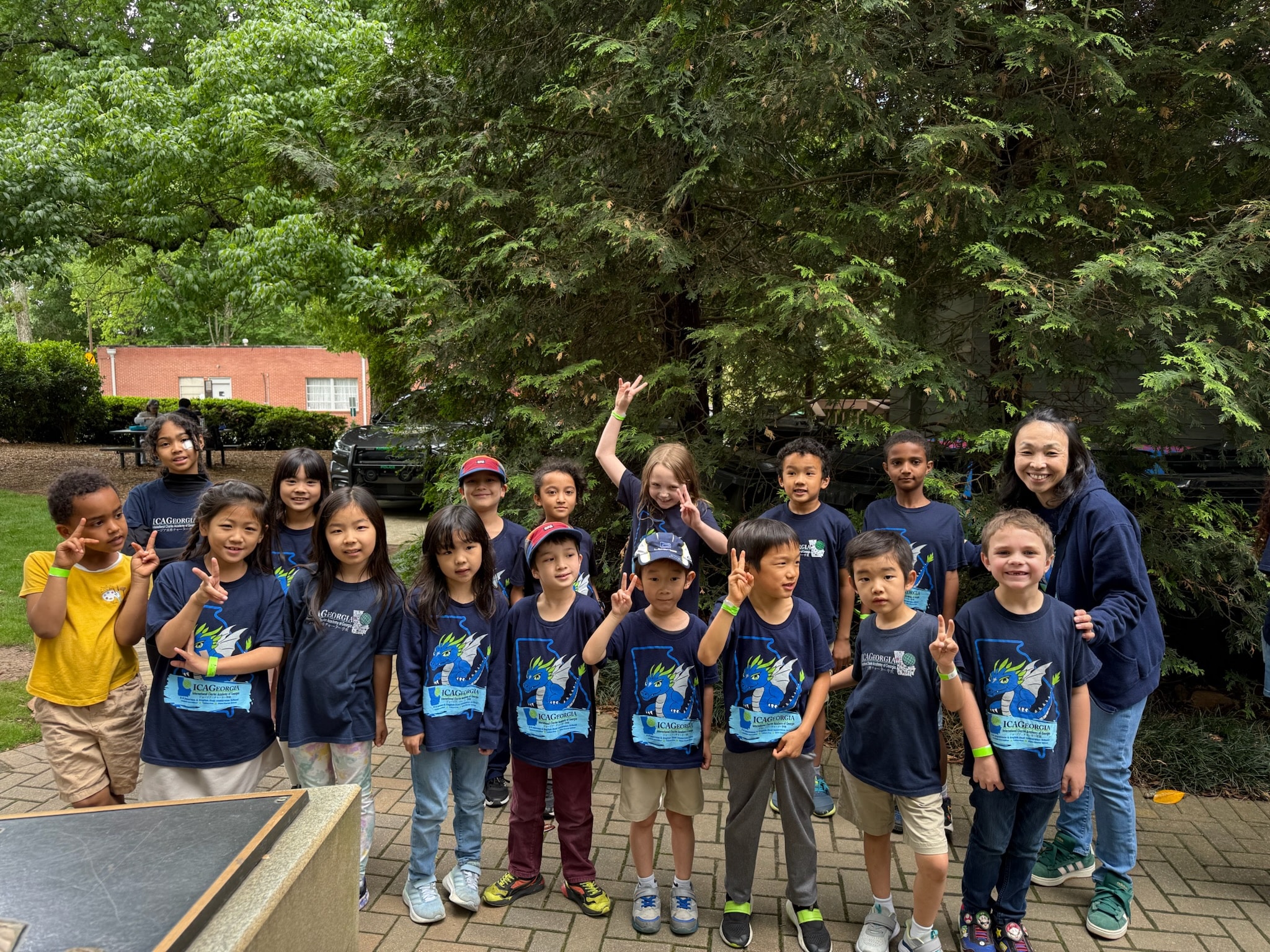
The International Charter Academy of Georgia (ICAGeorgia) recently hosted its third annual Dining with the Scholars event on April 18 — an evening filled with celebration, culture and community spirit.
Held at Canton House in Duluth, the event welcomed over 200 attendees, including students, parents, teachers, board members, local sponsors and special guest, the Consul General of Japan.
Fundraising and performances
The purpose of the event was twofold: to raise funds in support of academic programs for the school and, most importantly, to honor and showcase the outstanding talents and achievements of ICAGeorgia students.
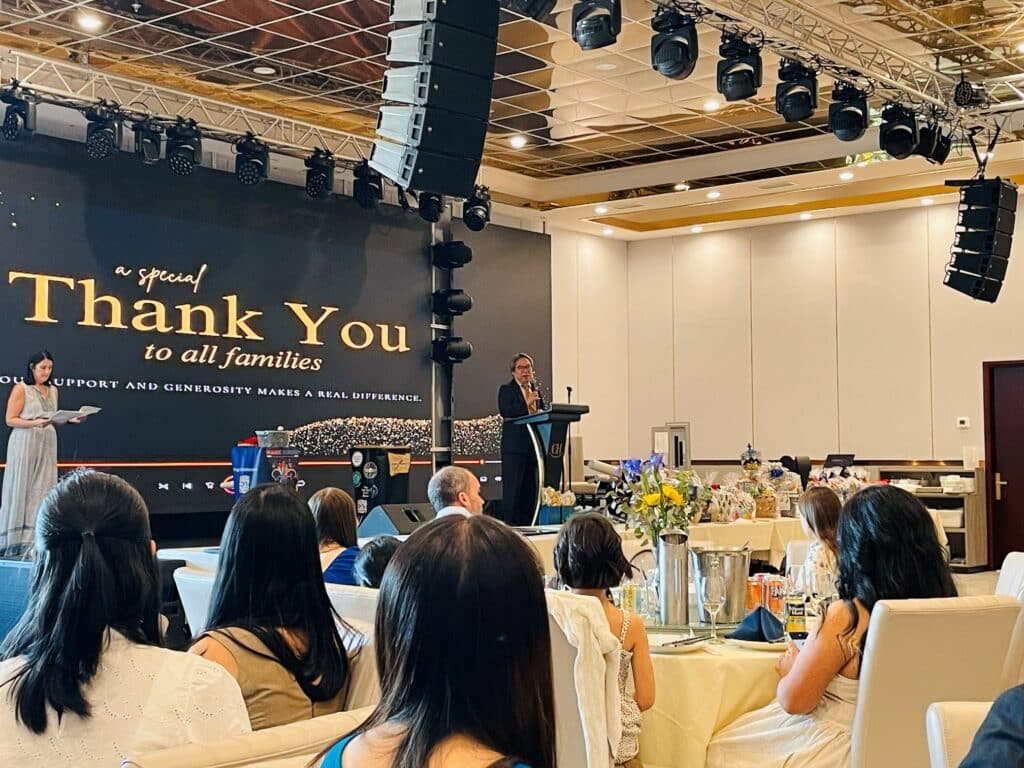
Throughout the evening, guests enjoyed a silent auction, dinner and dessert, as well as a vibrant lineup of student performances, a magic show and live music — creating a truly festive and memorable atmosphere.
“We extend our heartfelt thanks to the many local companies and organizations whose generous sponsorship made this event possible,” said Felecia Tucker-Jones, principal of ICAGeorgia. “[The] support helps us continue to grow and enhance our academic offerings.”
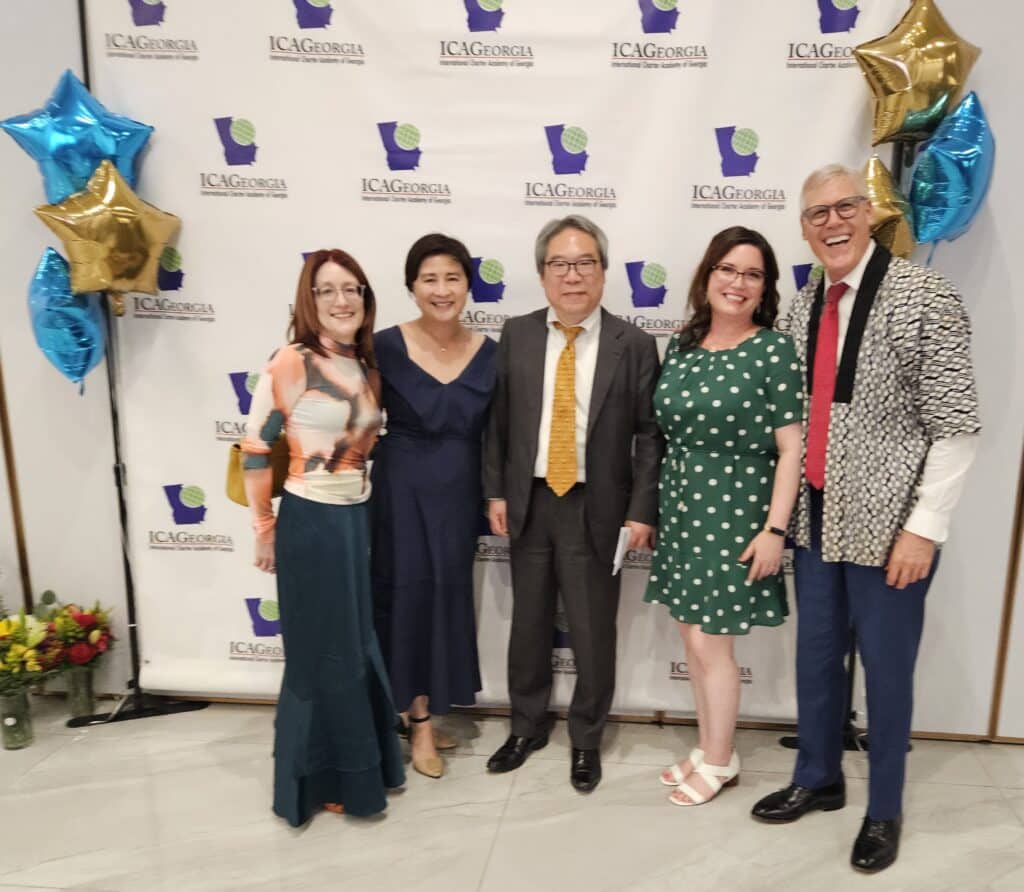
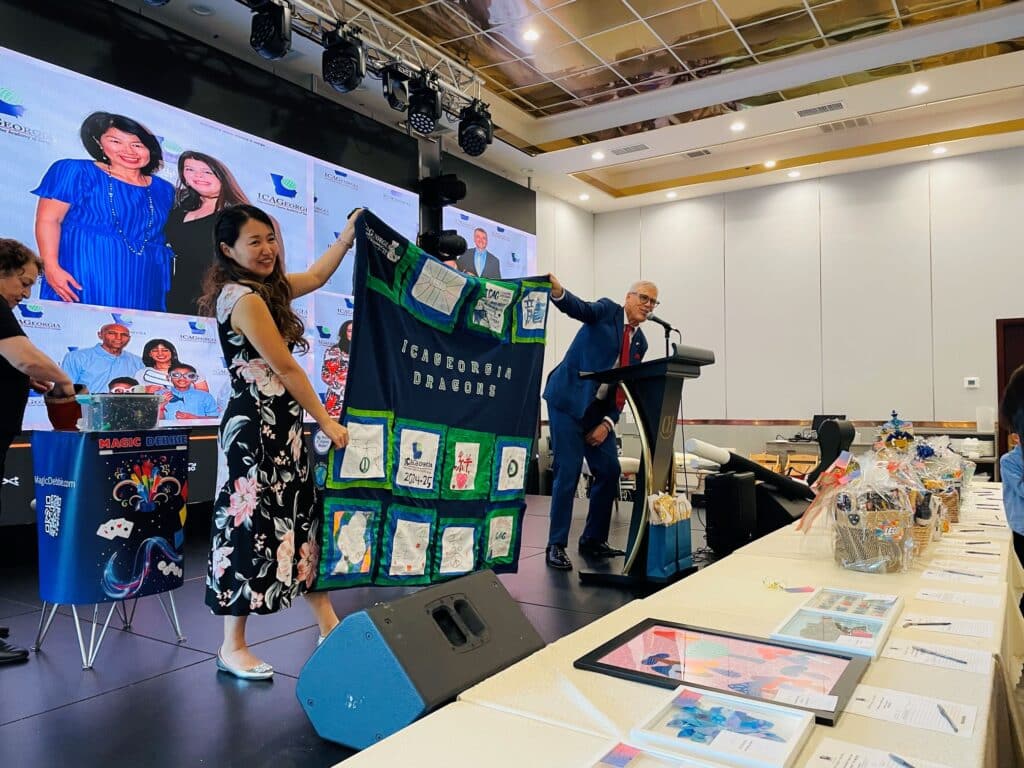
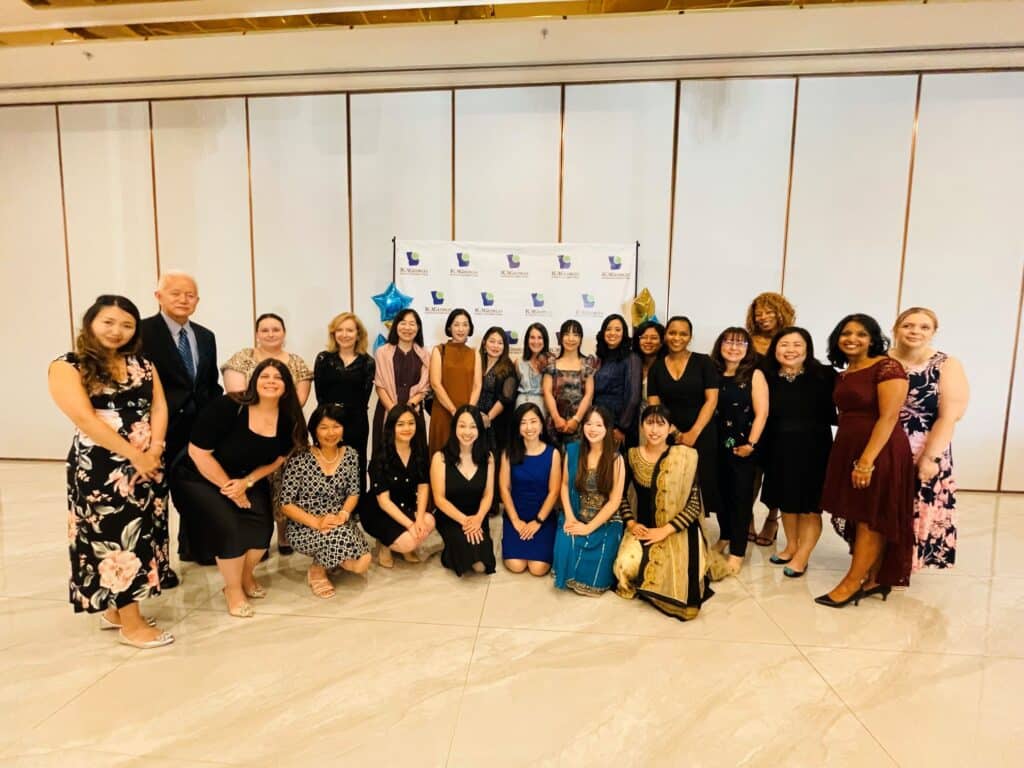
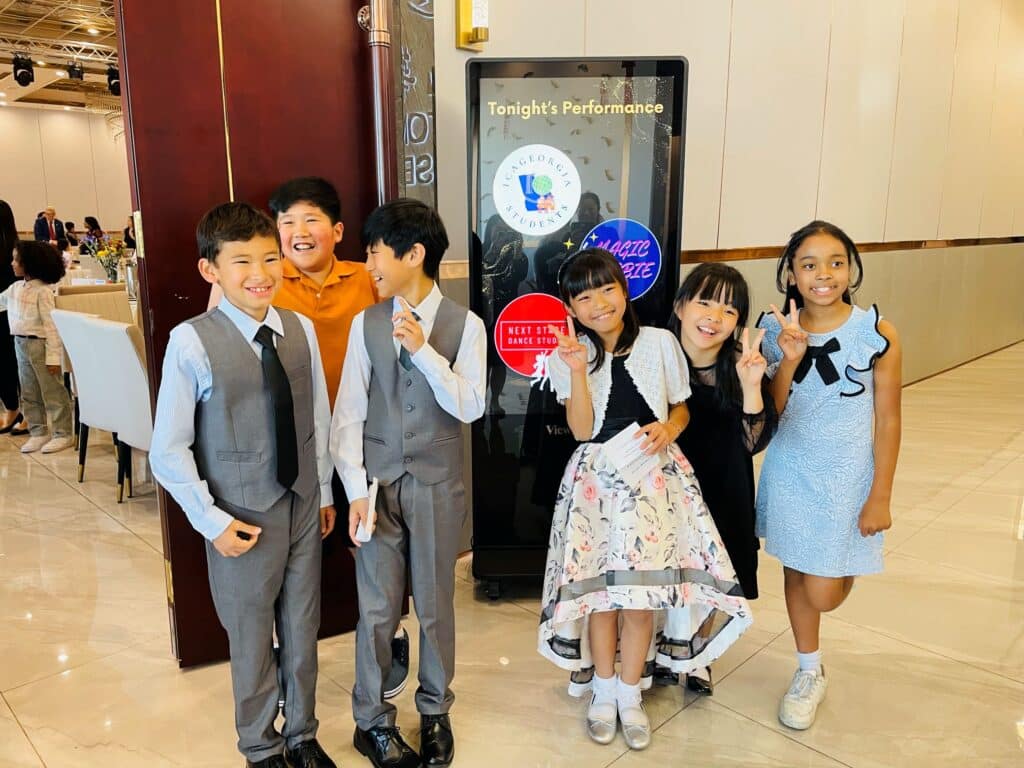
By all accounts, it was a night to remember — and a wonderful reminder of the strong, supportive community that surrounds the school.
Children’s Day Festival
On May 4, students, families and community members gathered at Thrasher Park in Norcross for a vibrant celebration of Children’s Day, a beloved Japanese holiday that honors children’s happiness, growth and well-being.
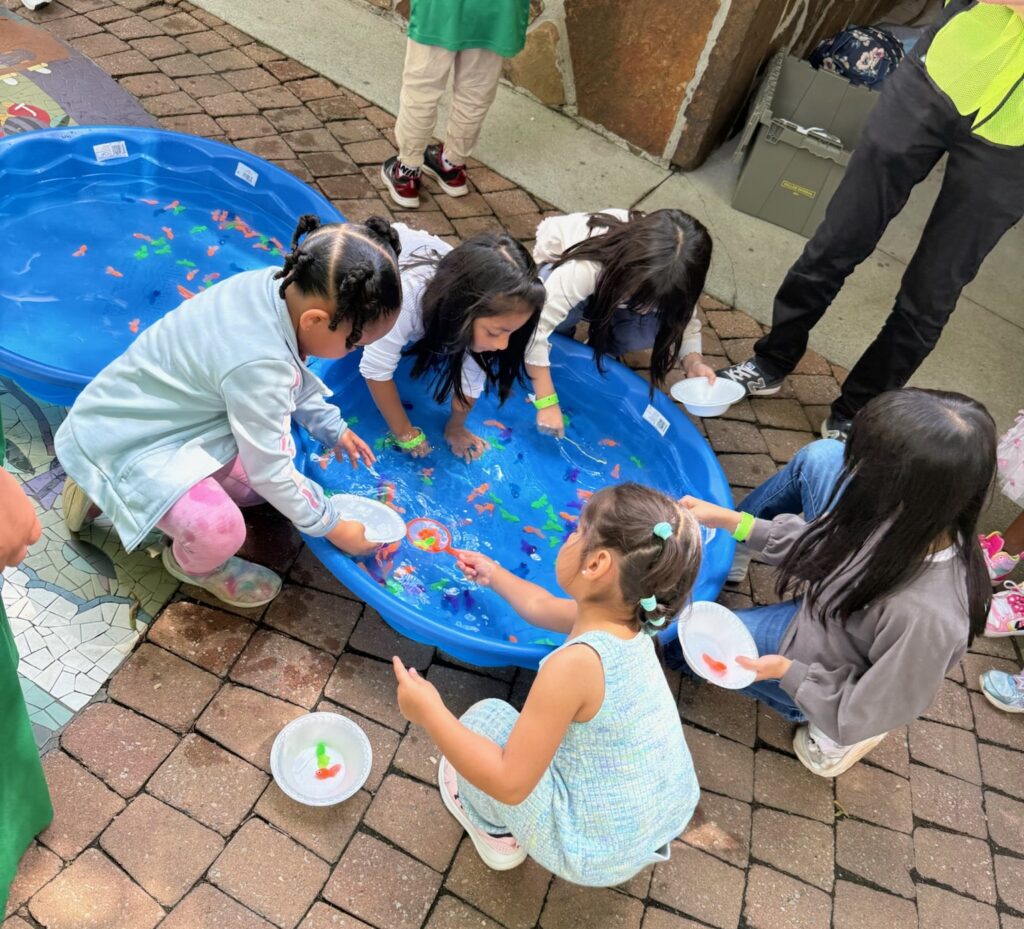
The Japan’s Children’s Day Festival 2025 brought together over 1,000 attendees for a full day of music, crafts, food and cultural experiences.
Visitors of all ages enjoyed traditional Japanese activities such as origami, kingyo sukui (goldfish scooping) and kimono try-ons, while kids played in bounce houses, participated in golf and soccer games and listened to story time in the park.
The festival’s stage was alive with performances from school choirs, dance studios and even a thrilling showcase of breakdancing and karate. Local vendors offered delicious international food — from pizza, tacos and paella to boba and shaved ice — while guests explored artisan booths and even online shopping options.
Culture and community
This festival was a beautiful reflection of cultural pride and community spirit and partnerships, with ICAGeorgia, local small businesses and generous sponsors bringing the vision to life.
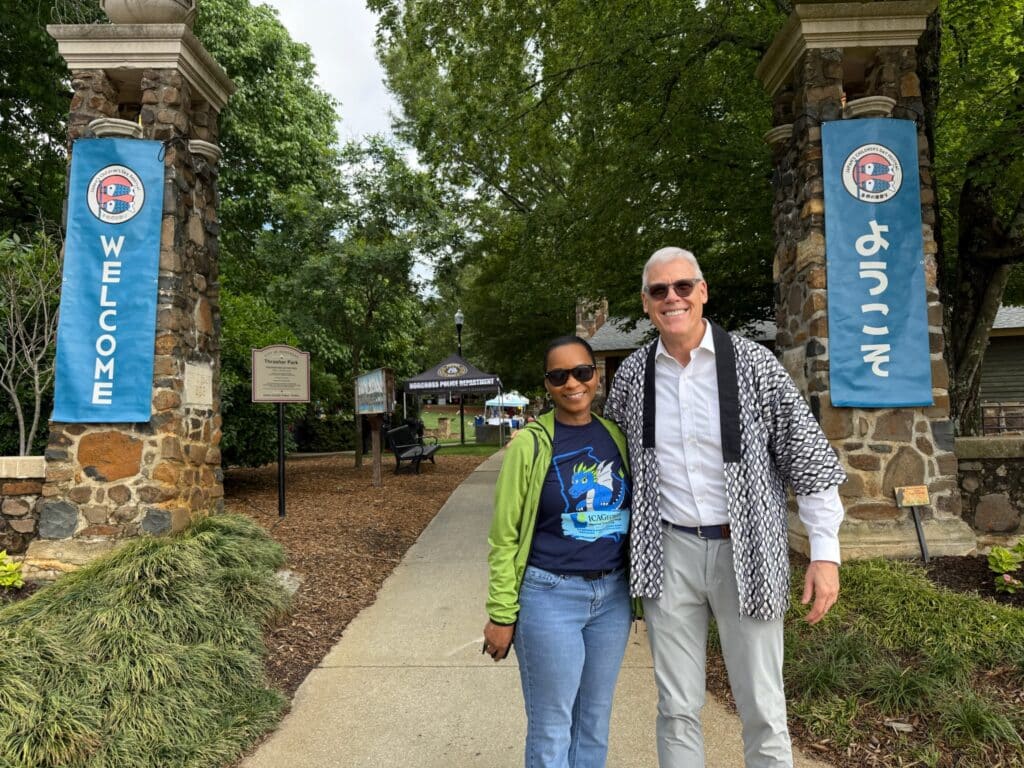
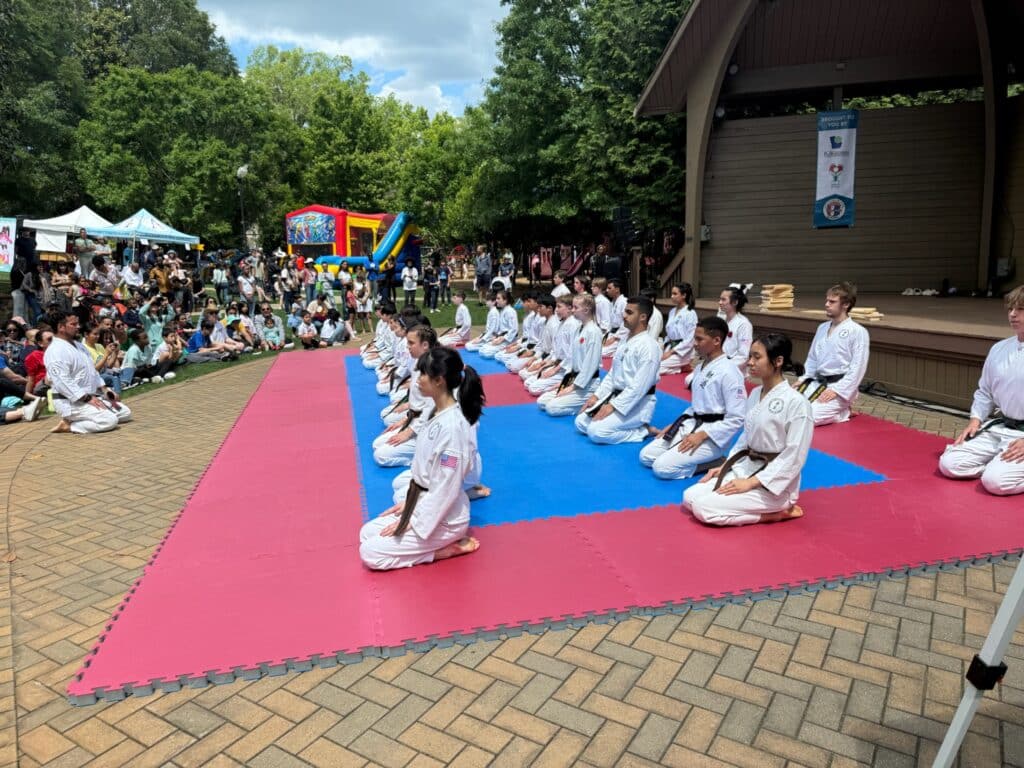
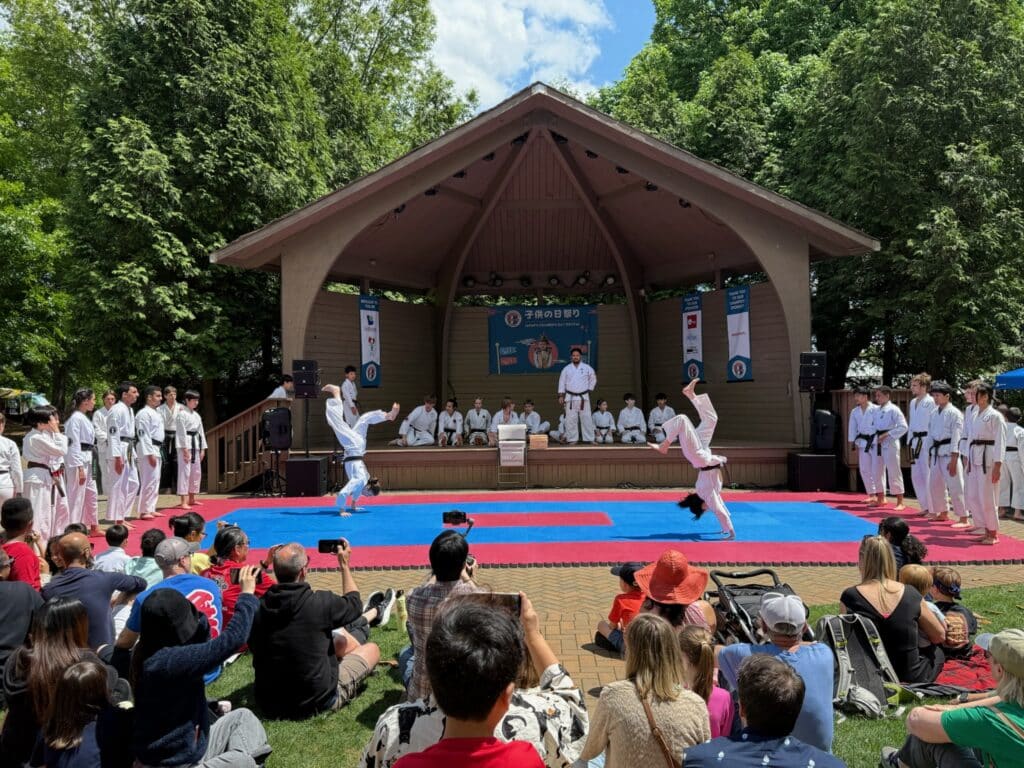
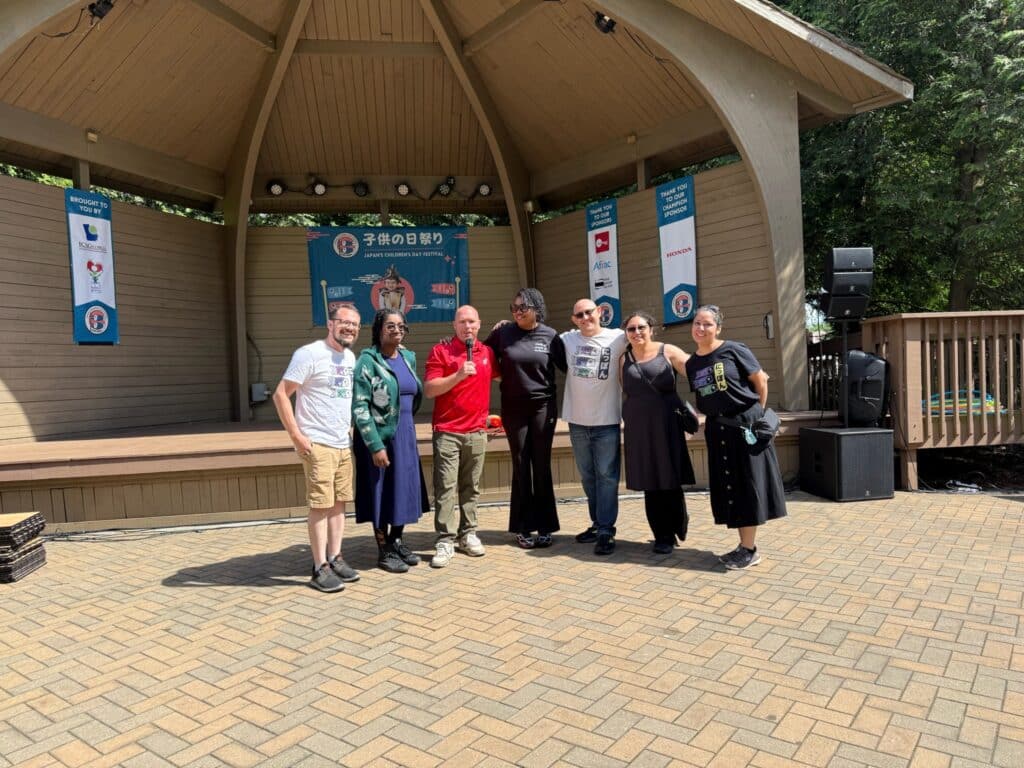
“We’re deeply grateful to all our sponsors, performers, volunteers and families who made the day so special,” said Jeremy Williams, president of the ICAGeorgia PTO.
As Norcross continues to grow as a hub for diverse cultural events, Japan’s Children’s Day Festival stands out as a joyful, family-focused experience with the goal of continuing for years to come.
Follow Japan’s Children’s Day Festival (@JapansChildrensDayFestival) on Instagram and Facebook, and stay tuned for next year’s exciting event.
About ICAGeorgia
The International Charter Academy of Georgia is a statewide charter school available free of charge to any K–6 student residing in Georgia.
Located in Peachtree Corners, the school offers a dual language immersion program in both English and Japanese, a rigorous standards-based curriculum, extracurricular activities and multiple opportunities throughout the year to engage in cross-cultural community.
For more about the school, visit internationalcharteracademy.org.
Related
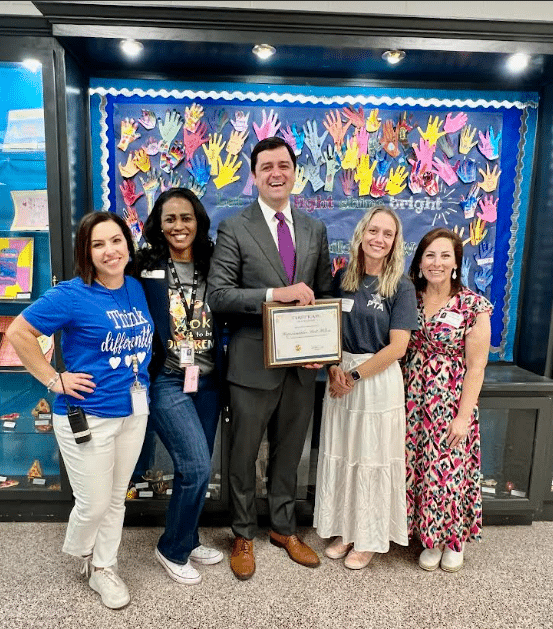
Simpson Elementary School celebrated Exceptional Children’s Week (ECW) last month with five days of special activities to recognize their special needs population and all of their exceptional students.
April 14–18 is set aside each year to celebrate children with disabilities, gifts and talents. This year’s ECW theme was Bridging Gaps and Building Futures, and the school was happy to take part.
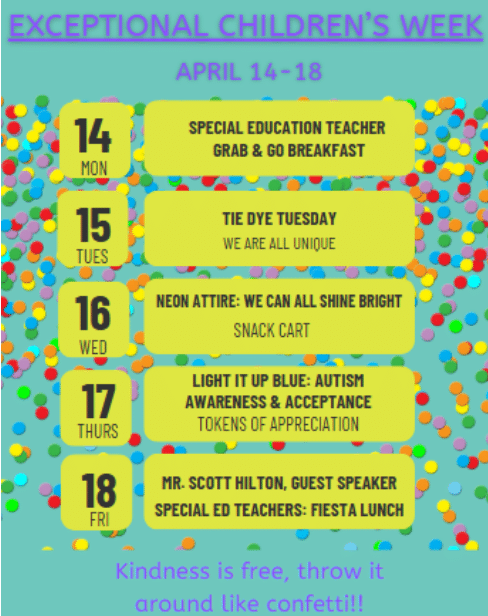
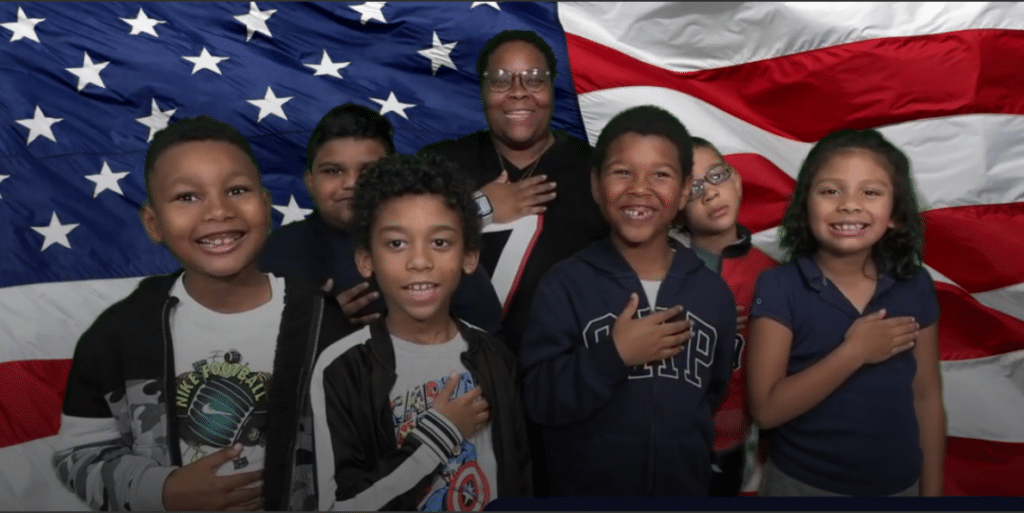
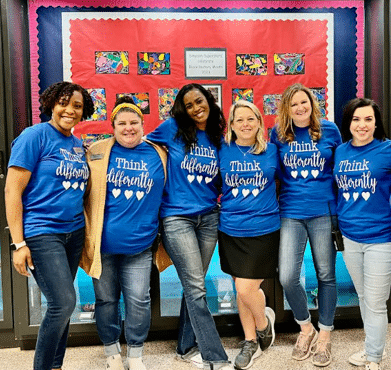
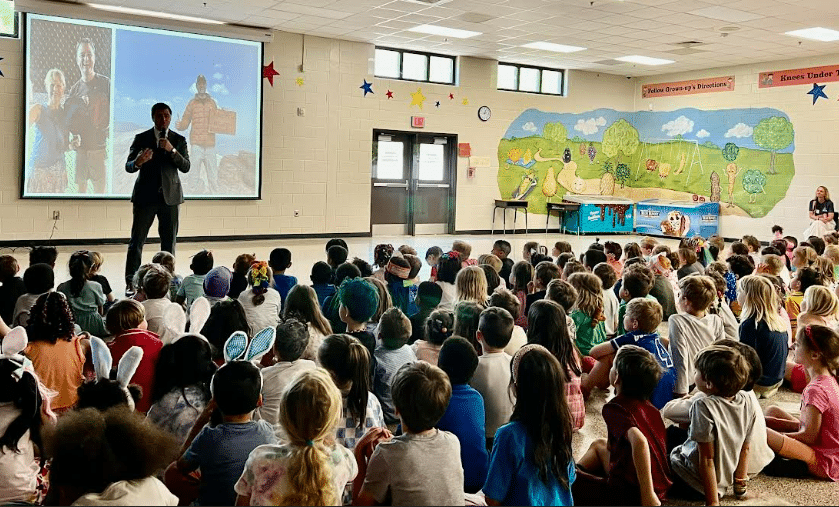
They highlighted each day of the week on the morning news with fun facts about notable people in society — and throughout history — who have overcome challenges with their disabilities, including actor Daniel Radcliffe (who has lived with dyspraxia for his entire life), Tom Cruise, Whoopi Goldberg, Frida Kahlo and Helen Keller.
Simpson Elementary’s technology team also pre-recorded various special needs classes reciting the Pledge of Allegiance every day of the week.
Guest speaker
To end their ECW with a bang, they invited former Simpson Elementary parent, State Representative Scott Hilton, to come in and speak to their K-2 classes about raising his son, Chase (who is autistic and now a student at Norcross High School), and how being different is okay.
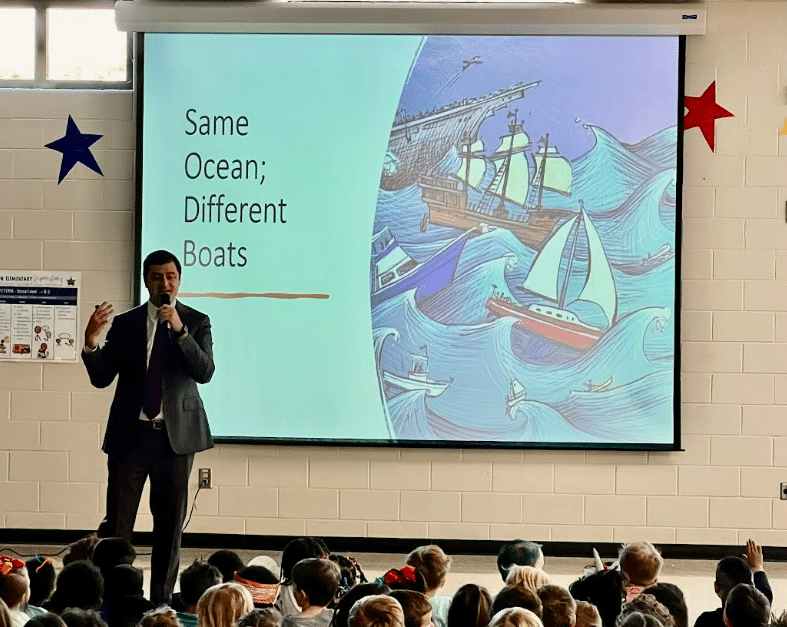
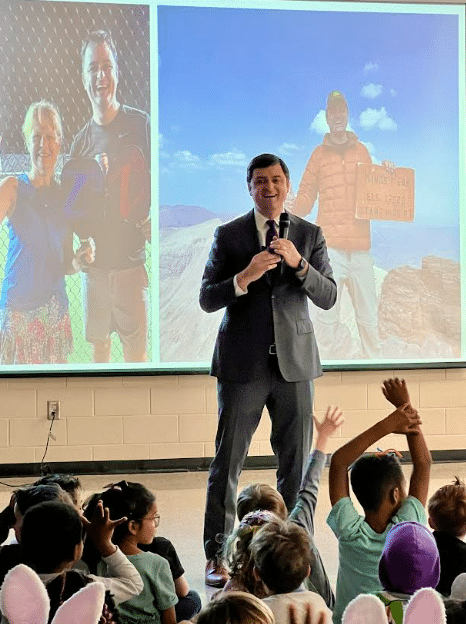
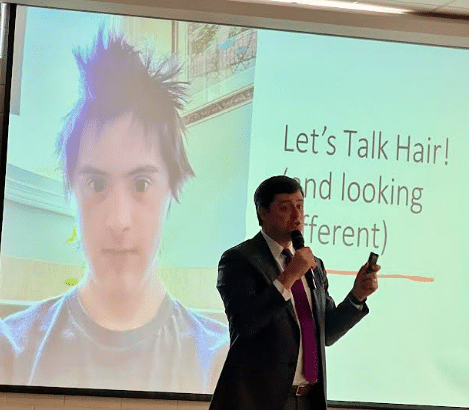
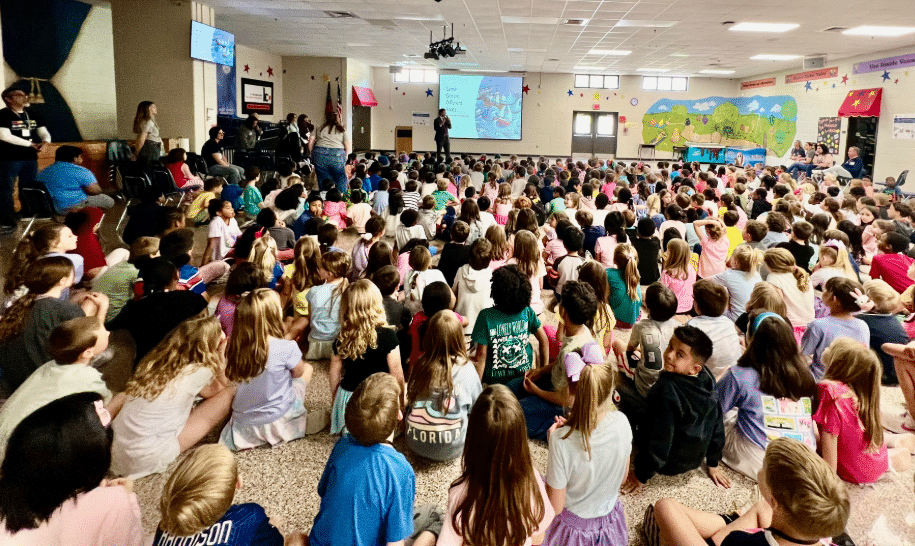
“Showing kindness and being inclusive is the best version of humanity,” said Dr. Taffeta Connery, Simpson Elementary School principal, in a statement about the event.
“Simpson Elementary has a special needs population of 214 (23%) of 946 students. [And] … we strive to ensure that our students are valued, recognized and instilled with high expectations for all.”
For more about Simpson Elementary, visit simpsones.gcpsk12.org.
Related
Education
Paul Duke STEM High School Student Earns CGO Scholarship
Published
4 weeks agoon
May 2, 2025
Cobb Global Outreach Inc. (CGO Inc.), a non-profit organization dedicated to enhancing financial literacy and educational opportunities, recently awarded three scholarships to metro Atlanta high school seniors, including one to Paul Duke STEM student, Baylor M. Brown.
The scholarship initiative underscores CGO Inc.’s commitment to empowering youth through financial education and support.
According to CGO’s social media pages, these outstanding students have shown incredible dedication and resilience in their academic journeys. “We are proud to support their continued success and look forward to seeing all that they will achieve!”
Scholarship details and impact
The scholarships provided by CGO Inc. are designed to alleviate financial barriers and encourage academic excellence among students pursuing higher education. Each scholarship recipient will receive financial assistance to support their educational endeavors, along with resources to enhance their understanding of financial management and literacy.
The scholarship recipients have demonstrated remarkable potential and a strong commitment to making a positive impact in their local community and beyond.
Bobby Cobb, CEO and founder of Cobb Global Outreach Inc., expressed enthusiasm about the partnership, stating, “We are honored to support the students … . By investing in their education and financial literacy, we aim to equip them with the skills necessary for a successful and financially secure future.”
Looking ahead
Cobb Global Outreach Inc. remains committed to expanding its scholarship programs and financial literacy initiatives. The organization plans to collaborate with additional schools and community partners to further its mission of closing the wealth gap and fostering economic empowerment among youth.
About Cobb Global Outreach Inc.
Founded in January 2021, Cobb Global Outreach Inc. is dedicated to educating middle and high school students about financial literacy. The organization believes that providing students with tools and resources related to financial literacy will help narrow the wealth gap and promote economic empowerment.
For more information, visit cobbglobaloutreachinc.com.
Related
Read the Digital Edition
Subscribe
Keep Up With Peachtree Corners News
Join our mailing list to receive the latest news and updates from our team.
You have Successfully Subscribed!

MomoCon 2025 to bring 60,000 Fans to Atlanta for a Weekend of Cosplay, Animation, Gaming and Music

From Boardrooms to the Himalayas: Vandana’s Journey to Purpose and Growing with Intention [Podcast]

Local Special Olympics Pickleball Team Honored with State House Resolution

Music Matters Productions Expands Peachtree Corners Headquarters

Brandon Branham Honored for Transformative Leadership in Peachtree Corners

Guardians of the Jukebox to Play the VoxStage on May 31

Celebration and Community: ICAGeorgia Wraps Up School Year with Two Festive Events

“Geek Culture” Shines at 2025 MomoCon

Vox-Pop-Uli Launches RED Initiative for Veterans’ Support

The PCBA Awards $500 to Light Up The Corners at After-Hours Event

“Geek Culture” Shines at 2025 MomoCon

Celebration and Community: ICAGeorgia Wraps Up School Year with Two Festive Events

Guardians of the Jukebox to Play the VoxStage on May 31

Music Matters Productions Expands Peachtree Corners Headquarters

Brandon Branham Honored for Transformative Leadership in Peachtree Corners

From Boardrooms to the Himalayas: Vandana’s Journey to Purpose and Growing with Intention [Podcast]

Light up the Corners [Video]

Capitalist Sage: Business Leadership in Your Community [Podcast]

Cliff Bramble: A Culinary Adventure through Italy

Top 10 Brunch Places in Gwinnett County

A Hunger for Hospitality

THE CORNERS EPISODE 3 – BLAXICAN PART 1

Top 10 Indoor Things To Do This Winter

The ED Hour: What it takes to Remove Barriers from Education








